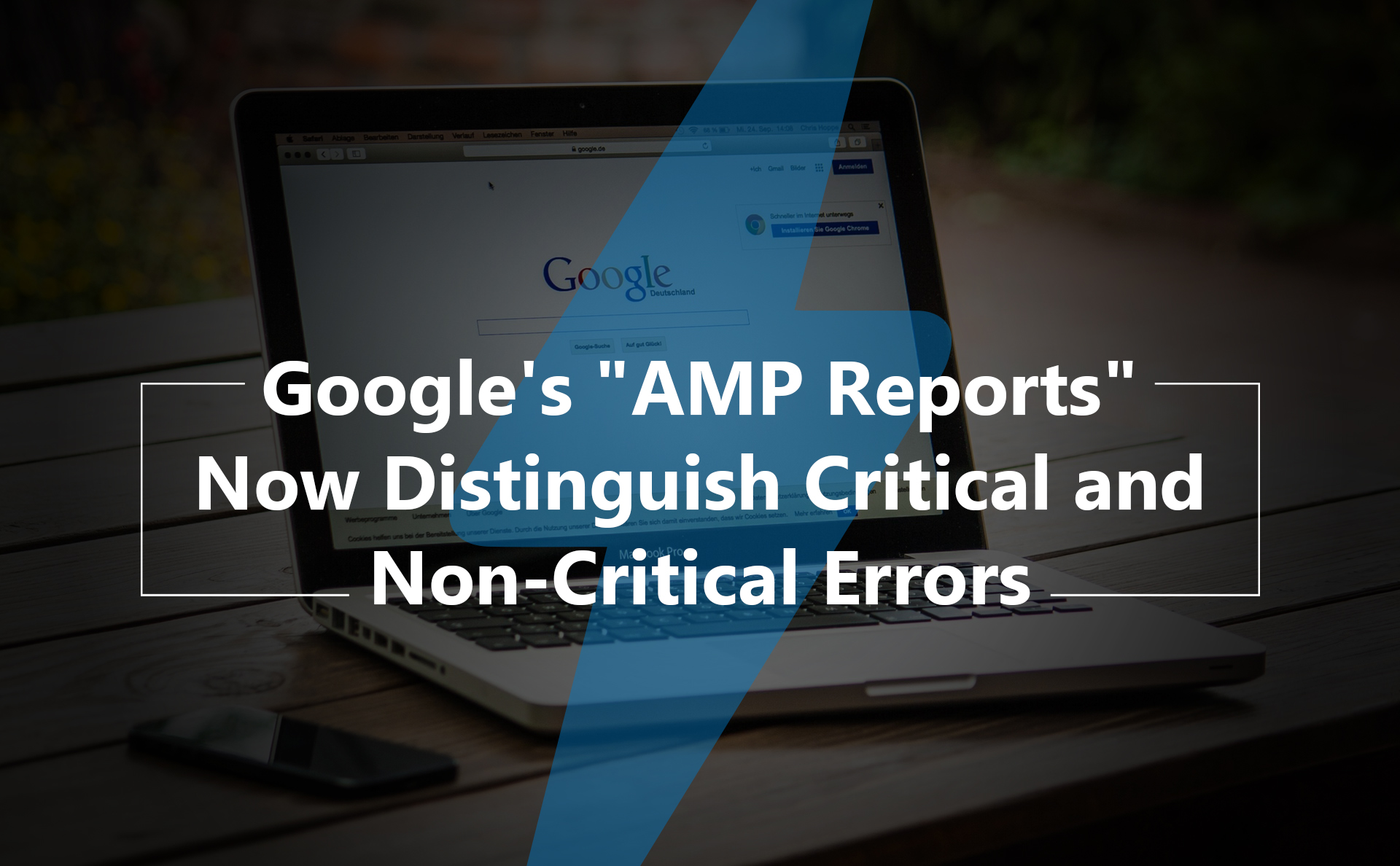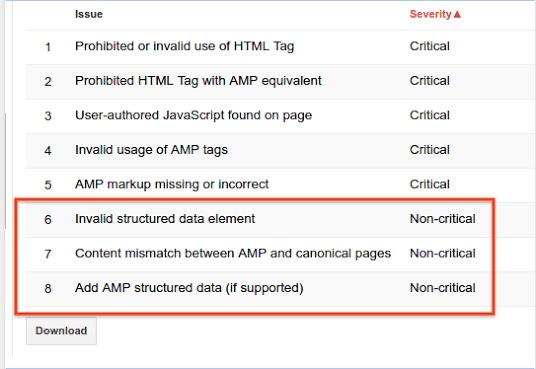Google’s “AMP Reports” Now Distinguish Critical and Non-Critical Errors
Google has recently announced that they made some changes to Google Search Console’s AMP reports which aims to distinctly distinguish between critical issues and non-critical issues. This is done to help users and webmasters understand the issues that would prevent their pages from being served with AMP-related issues on search as well as the non-critical issues that can simply be fixed.
What this means is that Google has simply made it easier for webmasters to differentiate between critical and non-critical errors for their AMP content. In the first place, those labelled as “critical errors” are content or pages that Google cannot index as AMP content which means that it cannot rank at all with Google’s SERP. Non-critical errors on the other hand are simply content with richer results that do not prevent the content from being indexed but they are prevented form being enhanced in the search results.
Why this is important for your SEO
When I heard about Google’s recent changes, I felt ecstatic as an SEO specialist because this is what I needed for AMP content for the longest time. I’ve always said that SEO is an ever changing field so it helps to know what I’m doing wrong or what I’m doing right. For what I’m doing wrong, Google now differentiating between AMP-related critical errors and non-critical errors is a blessing. Most of the time when we’re doing adjustments for our websites, Google will not tell us what we’re doing wrong. This leads to lower rankings or not even ranking at all!
People familiar with Google Search Console can now breathe a sigh of relief because looking for an error that may or may not exist used to take a lot of time which could be used for better things. With Google now telling us what we need to know, we can now focus on more important things like optimizing your website or fixing what Google says need fixing with your AMP-content.
Making a mistake does not mean that you are failing
The thing about receiving errors is that many people think of it as a sign of failure. I believe that way of thinking is wrong because making mistakes is part of the natural learning process of an SEO specialist. The thing about this field is that many of our endeavors are based on an educated guess from Google’s Webmaster Blog. We take what Google gives out and we interpret it in our own way. The thing about interpretations is that everyone has a unique understanding of things – and that includes Google’s blog releases.
What this means is that some people will guess correctly and do what Google wants them to do while some will make a mistake which could cost them to not rank at all. Again, that’s okay because that can be fixed with hard work and dedication. It’s a good thing Google came up with this update because there’s now more room to make mistakes.
What I’m trying to say is that with Google pointing you towards what you need to fix, making mistakes is no longer as scary as it was before when it was truly uncertain. With Google distinguishing between critical and non-critical errors, you now have more room to understand where you need to grow and prioritize what you need to fix with your AMP content and that’s more than what we can hope for as SEO specialists.
Key Takeaway
Basically speaking, Google Search Console now has a new feature which will tell you what your errors are and it will differentiate them as either critical errors or non-critical errors. This is essentially Google giving web masters and SEO specialists an easy way to find out their mistakes with regards to their AMP related content.
AMP, on the other hand, is quickly becoming more and more integrated with our daily lives because it is what Google wants; a light, text heavy page which loads really fast. AMP is quickly becoming a standard which websites must have in order to rank higher with Google. Many people are also becoming more reliant on AMP which is normal given how useful they are. If you want your website to rank higher especially when it comes to AMP related content, then Google’s latest update is definitely going to make you happy.
So what are your experiences with AMP? Does this make you happier as a web master or as an SEO specialist? How about as a user? Let me know what you think in the comments below.

